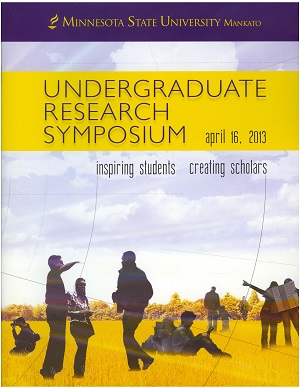The Literature of the Latin American Dictatorships and the United States
Location
CSU 203
Start Date
16-4-2013 11:10 AM
End Date
16-4-2013 12:10 PM
Student's Major
World Languages and Cultures
Student's College
Arts and Humanities
Mentor's Name
Adriana Gordillo
Mentor's Department
World Languages and Cultures
Mentor's College
Arts and Humanities
Description
This study is important because the world is still under repressive regimes despite the spread of Democracy lately. This research has the goals to show how literature had an important role in politics of repressive regimes in Latin America. Certainly, through its denunciative character, this revolutionary literature showed that the promotion of egalitarian societies is only effective when the population cooperates freely and this is very important to know. To perform my study, I used academic sources such as documentaries, articles and books in order to understand the context at stake, as well as literary criticism that I discussed through close reading and critical analysis techniques. For example, novels and poems like Diamelia Eltit: El Padre Mio, Gionconda Belli: Hasta que seamos libres, Tomas Harris: Cipango. Based on these sources I learned that the Latin American dictatorships had an impact on the literature of this region. Among those ideas, literature presented the United States as the significant actor in these dictatorships. As a result, I concluded that the United States, via those dictatorships, did not only control this region politically but also, in doing so, lead to a revolutionary literature, which helped during this time to understand the foreign policy of the United Sates.
The Literature of the Latin American Dictatorships and the United States
CSU 203
This study is important because the world is still under repressive regimes despite the spread of Democracy lately. This research has the goals to show how literature had an important role in politics of repressive regimes in Latin America. Certainly, through its denunciative character, this revolutionary literature showed that the promotion of egalitarian societies is only effective when the population cooperates freely and this is very important to know. To perform my study, I used academic sources such as documentaries, articles and books in order to understand the context at stake, as well as literary criticism that I discussed through close reading and critical analysis techniques. For example, novels and poems like Diamelia Eltit: El Padre Mio, Gionconda Belli: Hasta que seamos libres, Tomas Harris: Cipango. Based on these sources I learned that the Latin American dictatorships had an impact on the literature of this region. Among those ideas, literature presented the United States as the significant actor in these dictatorships. As a result, I concluded that the United States, via those dictatorships, did not only control this region politically but also, in doing so, lead to a revolutionary literature, which helped during this time to understand the foreign policy of the United Sates.
Recommended Citation
Gobey, Desiree. "The Literature of the Latin American Dictatorships and the United States." Undergraduate Research Symposium, Mankato, MN, April 16, 2013.
https://cornerstone.lib.mnsu.edu/urs/2013/oral-session-07/3




